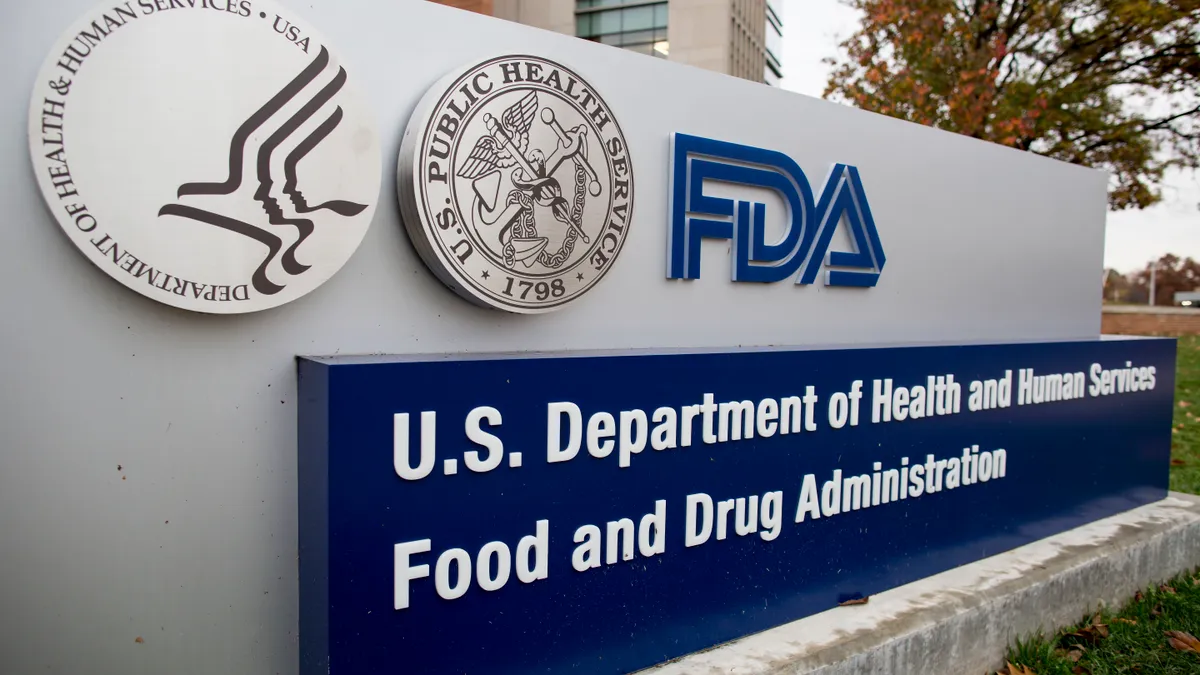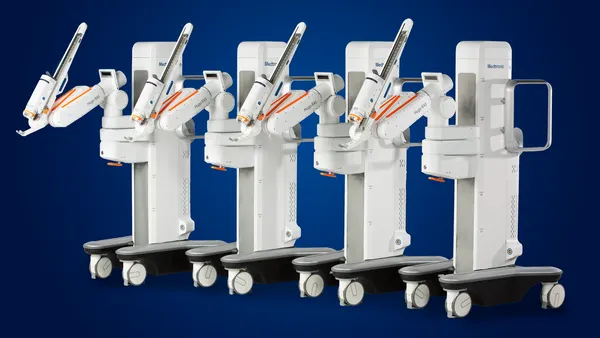Dive Brief:
- FDA Thursday released new draft guidance outlining the agency's thinking on considerations for developing and labeling in vitro companion diagnostic devices for specific classes of oncology therapeutic products. The effort comes as the agency approves more targeted medicines for specific disease subtypes.
- But while targeted medicines hold promise for patients, more needs to be done to oversee laboratory developed tests to ensure patient safety and support innovation, according to FDA Commissioner Scott Gottlieb, device center chief Jeff Shuren and chief of staff to the commissioner Lauren Silvis.
- The draft guidance came the same day bipartisan House and Senate lawmakers released updated draft legislation establishing a framework to oversee in vitro clinical tests.
Dive Insight:
FDA has been pursuing greater authority to oversee lab tests for years and worked with lawmakers to draft the Leading-edge IVCT Development or VALID Act.
Gottlieb and Shuren argue that the new draft guide will make it easier to get class labeling for diagnostic tests.
"Trials designed to support approval of a specific therapeutic product and a specific companion diagnostic have led to companion diagnostic labels that reference only a specific therapeutic product(s). Such specificity in labeling can limit a potentially broader use of a companion diagnostic that may be scientifically appropriate," the draft guidance states.
The regulators said the draft guide will help address some of the "commercial challenges for companion diagnostics."
"We're concerned that the current situation is not optimal for patient care because a clinician may need to order a different companion diagnostic (i.e., one that includes other therapeutic products on the label), obtain an additional biopsy from a patient, or both, to have additional therapy treatment options," Gottlieb and Shuren said in a statement.
It appears FDA is backing the bipartisan legislation. The regulators said they have worked closely with lawmakers, patient groups, providers and others to share ideas on how legislation would enable the agency to better oversee a framework to oversee LDTs.
Sponsors in the U.S. House of Representatives are Reps. Larry Bucshon, R-Ind., and Diana DeGette, D-Colo., and in the Senate, Michael Bennet, D-Colo., and Orrin Hatch, R-Utah.
The bill will not move this Congress, according to Hatch.
FDA argues that a new approach that treats LDTs and FDA-reviewed diagnostic tests under one umbrella would enhance patient safety. Specifically, the regulators endorsed an approach that includes:
- Focusing review resources on tests that have the highest risk.
- Giving FDA "strong postmarket authorities to protect patients from harm."
- Transparency requirements on test outcomes and limits.
- Using third party reviews and inspections.
- A pathway for patients to quickly access new "breakthrough technologies."
The draft bill closely aligns with FDA's proposed framework. It also contains a section that would allow the agency to precertify certain tests, an idea endorsed by Gottlieb in the past.
A more controversial proposal in the bill allows FDA to pull unsafe tests from the market, an idea that has been criticized in the past by the American Clinical Laboratory Association. The trade group has said the FDA should not be able to "claw back" tests "without basis in meaningful standards."
Regulators predicted just a small slice, around 10%, would require premarket review.
"We'd concentrate individual premarket review on tests that are novel, higher risk, marketed directly to consumers, used at home, or cross-labeled for use with a drug or other therapeutic products," Gottlieb, Shuren and Silvis wrote Thursday.
Cowen Washington Research Group's Eric Assaraf wrote in a research note that the bill is a positive for clinical labs, such as Myriad and Genomic Health, because it contains "a lighter regulatory touch than was previously pursued by FDA" and grandfathers most existing lab tests.
A DeGette spokesperson tells MedTech Dive that the VALID Act contains many changes from the draft legislation released earlier this year by lawmakers to reflect technical comments FDA submitted.
"The draft establishes a framework for the approval and regulation of IVCTs and LDTs that is similar to medical device approvals, but focuses FDA resources on the evaluation and regulation of high-risk tests, while allowing low risk tests to go through a precertification program," the spokesperson said in an email.










